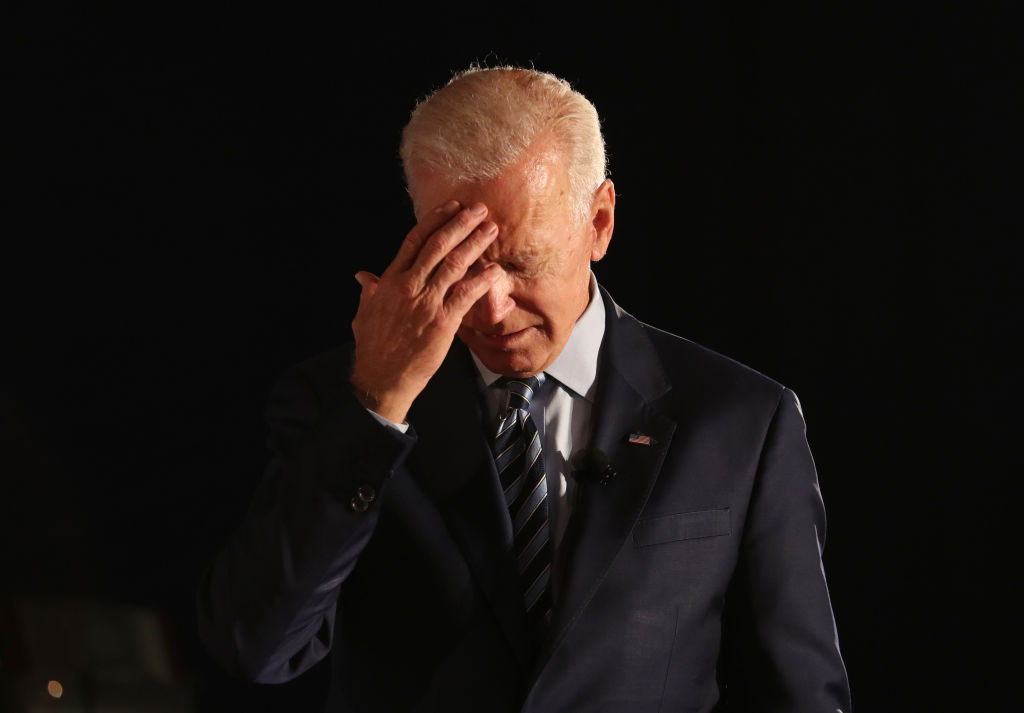The supply chain has been suffering ever since COVID-19 started, but now consumers are becoming keenly aware of the crisis as grocery store shelves remain empty and the holidays approach.
Ships are idle in Los Angeles ports, unable to unload at the clogged docks, which means that millions of dollars worth of goods are simply sitting at sea.
There are shortages of toilet paper (yet again), furniture, toys, electronics and more. Consumers are getting worried that Christmas presents won’t arrive in time. Prices of basic goods are the grocery are rising with inflation.
Everyone, from port authorities to governors and the president, is trying to address these problems. But President Biden’s recent comments on the situation inspire little hope in his abilities to solve this crisis.
During a White House briefing on Nov. 6, Biden rambled about how his “Build Back Better” plan will invest in American infrastructure, which will magically solve all of the problems in our economy.
“The House of Representatives passed an Infrastructure Investment and Jobs Act. That’s a fancy way of saying a bipartisan infrastructure bill — a once-in-a-generation investment that’s going to create millions of jobs modernizing our infrastructure — our roads, our bridges, our broadband, a whole range of things — to turn the climate crisis into an opportunity,” Biden said.
Apparently, this plan will also solve the supply chain crisis overnight.
“It’s going to make it easier for companies to get goods to market more quickly and reduce supply chains’ bottlenecks and now — and now and for decades to come,” Biden said.
Fumbling for a way to explain the supply chain crisis, the very thing that Biden was claiming that his plan would fix, is also not a great way to persuade the public. Here is a sampling of Biden’s almost incoherent statement:
“It’s backed up because peoples supplies or materials that end up being on our kitchen table or in our in in our our fam, our our our life, guess what? There close those plants because they have COVID.”
Joe thinks we’re too dumb to understand supply chain issues so he tried to:
“It’s backed up because peoples supplies or materials that end up being on our kitchen table or in our in in our our fam, our our our life, guess what? There close those plants because they have COVID.” pic.twitter.com/VekLNNZoa0
— Robby Starbuck (@robbystarbuck) November 7, 2021
In the midst of trying to convince everyone that his plans will solve all the economic problems, Biden began to belittle everyone by saying that the economics were just so complicated that no one can really understand it.
Talking to an audience as if they are dumb is not a great tactic for convincing them that your ideas are good.
“[W]hether you have a PhD or you’re — or you’re working, you know, in a restaurant, it’s confusing. And so, people are understandably worried. They’re worried,” Biden said.
We probably should be worried, since about $24 billion worth of goods is just floating in the ocean, unable to be unloaded.
We should probably be worried that our president thinks the supply chain is incomprehensible, yet he is trying to solve it.
The supply chain crisis, while it is multi-faceted and stretches across nearly every market, is not terribly difficult to understand: The COVID-19 pandemic caused a shortage of workers (for several reasons), which snarled the operations of shipping companies and manufacturers. Simultaneously, consumer spending shifted and increased out of fear of lack of supply. The result is the supply chain crisis.
The holiday season always increases demand from consumers, as people rush to buy Christmas presents. So the political cost of the supply chain crisis is increasing. Every time a consumer walks into a store and finds empty shelves, it’s Biden’s fault.
Biden can’t suffer the damage of being the administration that ruined Christmas of 2021. His ratings, which have already been plummeting, would certainly take another hit.
If Biden really wants to succeed, he will have to find a way to fix the supply chain crisis and not ruin Christmas. The first step in doing so is not talking down to the American population like we’re a bunch of imbeciles who can’t understand basic economics.
This article appeared originally on The Western Journal.
























 Continue with Google
Continue with Google